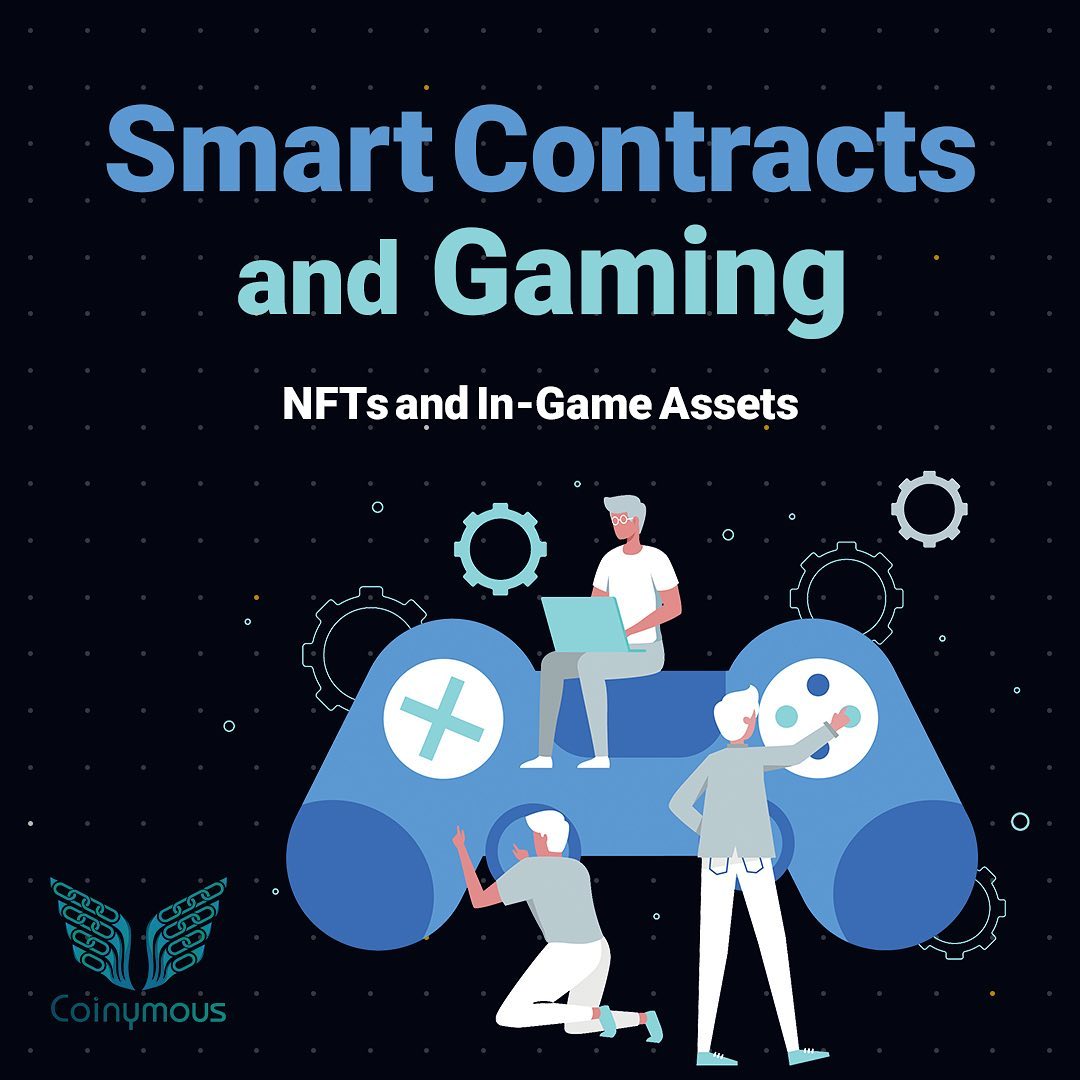Smart Contracts and Gaming: NFTs and In-Game Assets 🎮🔑
Smart contracts and NFTs are transforming the gaming industry by enabling true ownership and trade of in-game assets, creating player-driven economies and enhancing the overall gaming experience. 🎮🔑

Introduction:
The gaming industry has witnessed a significant transformation in recent years, thanks to the integration of blockchain technology and smart contracts. One of the most exciting developments in this space is the emergence of Non-Fungible Tokens (NFTs) and their impact on in-game assets. In this blog post, we will explore the concept of smart contracts in gaming, the rise of NFTs, and how they are revolutionizing the way we own, trade, and interact with in-game assets.
Understanding Smart Contracts in Gaming:
Smart contracts are self-executing contracts with the terms of the agreement directly written into lines of code. In the context of gaming, smart contracts enable the creation of digital assets, such as in-game items, characters, or virtual real estate, that can be owned, traded, and interacted with in a secure and transparent manner. These contracts are built on blockchain platforms like Ethereum, ensuring immutability and preventing unauthorized modifications.
The Rise of NFTs:
Non-Fungible Tokens (NFTs) are unique digital assets that can represent ownership or proof of authenticity for a specific item or piece of content. Unlike cryptocurrencies, which are fungible and interchangeable, NFTs are indivisible and have distinct characteristics that make them one-of-a-kind. NFTs have gained significant popularity in the gaming industry as they allow players to truly own their in-game assets, providing a new level of value and rarity.
Revolutionizing In-Game Assets:
-
True Ownership: With the help of smart contracts and NFTs, players can now have true ownership of their in-game assets. This means that items or characters acquired in one game can be transferred or sold to other players in a secure and transparent manner, creating a vibrant secondary market for digital goods.
-
Interoperability: Smart contracts enable interoperability between different gaming platforms. Players can use their NFTs across multiple games, bringing their hard-earned assets and achievements from one game to another. This enhances the overall gaming experience and encourages player loyalty.
-
Player-driven Economies: The integration of smart contracts and NFTs has empowered players to participate in player-driven economies. They can create, buy, and sell in-game assets, earning real-world value for their time and skills. This has opened up new opportunities for gamers to monetize their passion and talent.
-
Authenticity and Scarcity: NFTs provide a unique solution to the problem of authenticity and scarcity in the digital world. Each NFT is verifiably unique and cannot be replicated or forged, ensuring that players can trust the rarity and value of their in-game assets.
Challenges and Future Possibilities:
While the adoption of smart contracts and NFTs in gaming has brought numerous benefits, challenges remain. Issues such as scalability, high transaction costs, and environmental concerns need to be addressed for widespread implementation. However, ongoing developments in blockchain technology, such as layer 2 solutions and proof-of-stake consensus algorithms, offer promising solutions to overcome these challenges.
Conclusion:
Smart contracts and NFTs have introduced a new era of ownership and value in the gaming industry. By bringing true ownership, interoperability, and player-driven economies, these technologies have revolutionized the way we perceive and interact with in-game assets. As the adoption of blockchain technology continues to grow, it is an exciting time for gamers and game developers alike. The future holds endless possibilities for the integration of smart contracts and NFTs, shaping a more immersive, secure, and player-centric gaming experience.